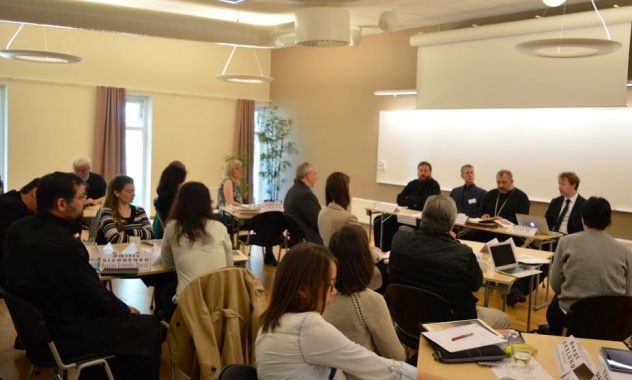Russian Orthodox Church representative attends human rights seminar in Hagaberg
 A seminar organized by a mixed human rights working group of the Conference of European Church in cooperation with representatives of international organizations in Brussels took place on May 25-29, 2015, in the People’s University in Hagaberg, Sweden.
A seminar organized by a mixed human rights working group of the Conference of European Church in cooperation with representatives of international organizations in Brussels took place on May 25-29, 2015, in the People’s University in Hagaberg, Sweden.
The forum was attended by over 40 clergy, political and public figures and experts in human rights.
The main themes under discussions were theological foundations of the Christian understanding of human rights, freedom of confession in the system of fundamental human rights, pressing aspects of human rights protection in pastoral work with prisoners, emigrants, and representatives of small nations, as well as new initiatives of the European Union, Council of Europe, Organization of Security and Cooperation in Europe and United Nations in the area of protection of freedom of religious beliefs.
Archpriest Dimitry Sizonenko, acting representative of the Russian Orthodox Church to European international organizations in Brussels, took part in the panel discussion on Theology, Politics and Human Rights organized as part of the forum. In his address, he presented the Russian Church’s basic propositions on human dignity, freedom and rights, stressing the need for an open and constructive dialogue between representatives of traditional religions and proponents of the secular interpretation of the so-called ‘collective rights’ concept, which is used to oust any manifestation of faith and religious beliefs from public life under the pretext of opposing the growing radicalism in Europe today.
The participants in the seminar had an opportunity to see the work carried out in Sweden to accept refugees from the Middle East countries and to meet the Swedish commissioner for human rights and members of the Interreligious Council in Sweden.
In the exchange of opinions, participants stressed that in today’s Europe there must be a system of commonly accepted values based on the age-old tradition of the Christian civilization, without which it is impossible to exist in a situation of globalization.
Source: Moscow Patriarchate

